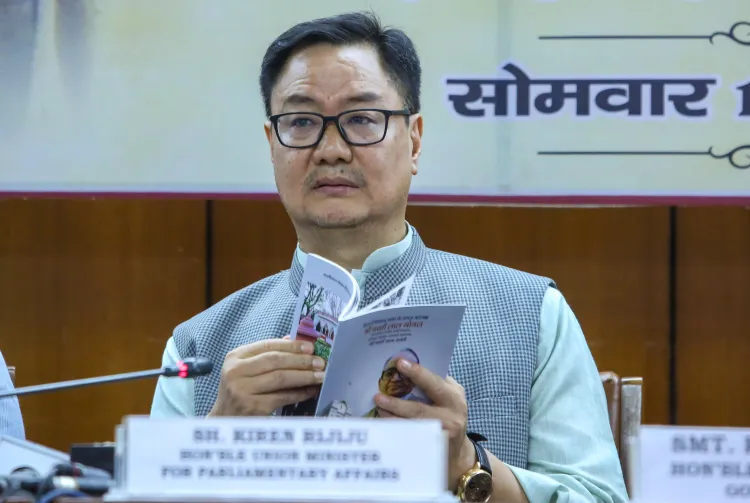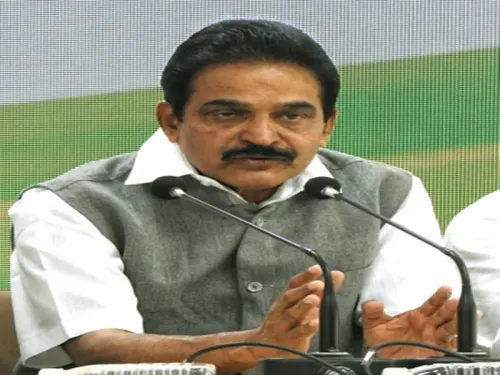Does the Spirit of Decision Favor a Democratic India? Kiren Rijiju Commends SC's Ruling on Waqf Act

Synopsis
Key Takeaways
- The Supreme Court's interim ruling supports democratic values.
- Kiren Rijiju emphasizes the importance of the judgment for marginalized communities.
- The five-year rule for practicing Islam in Waqf creation is under reconsideration.
- The ruling reinforces the principle of separation of powers.
- Parliamentary authority should be respected in legal challenges.
New Delhi, Sep 15 (NationPress) Union Parliamentary Affairs Minister Kiren Rijiju expressed his approval of the Supreme Court's interim ruling on the Waqf (Amendment) Act, stating that the essence of the judgment supports a "democratic India" and confirmed that the Central Government would review the stipulation requiring five years of practicing Islam for the establishment of Waqf.
The apex court, in its interim ruling on Monday, chose not to suspend the Waqf Act in its entirety, emphasizing that a statute is presumed constitutional and can only be suspended in exceptional circumstances.
However, a Bench comprising Chief Justice of India B.R. Gavai and Justice A.G. Masih placed a stay on the provision necessitating five years of practicing Islam for Waqf creation until the associated rules are formulated.
In response to the ruling, Rijiju informed reporters, "I am pleased with the Supreme Court's judgment. This will aid the underprivileged, homeless, and marginalized Muslim communities. As the apex court, its decisions inevitably carry weight. This ruling effectively reaffirms what was established in Parliament. We will revisit the provision concerning practicing Muslims."
He also criticized the Opposition and the protestors against the Act, asserting that disputing Parliament's authority is unwarranted.
"I have not yet reviewed the judgment; however, the essence of the order supports a democratic India. Some individuals unnecessarily challenge the authority of Parliament in the Supreme Court. One can contest a provision, but not Parliament's authority," he said.
The Supreme Court further suspended the provision that empowered a designated officer to determine if a Waqf property encroached on government land, declaring that assigning such powers to an executive officer would violate the principle of separation of powers.
Moreover, the court mandated that no third-party rights could be established against any involved parties until adjudication by the tribunal occurs.









